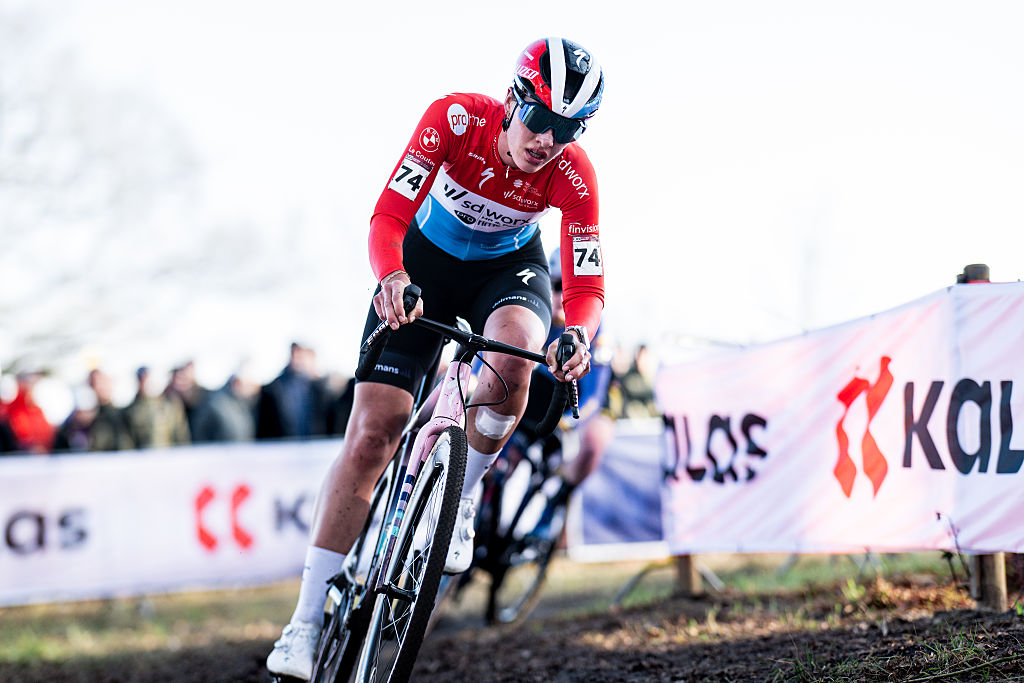Dillier seizes rare opportunity at Giro d'Italia
Swiss rider denies Stuyven in Terme Luigiane
The latest race content, interviews, features, reviews and expert buying guides, direct to your inbox!
You are now subscribed
Your newsletter sign-up was successful
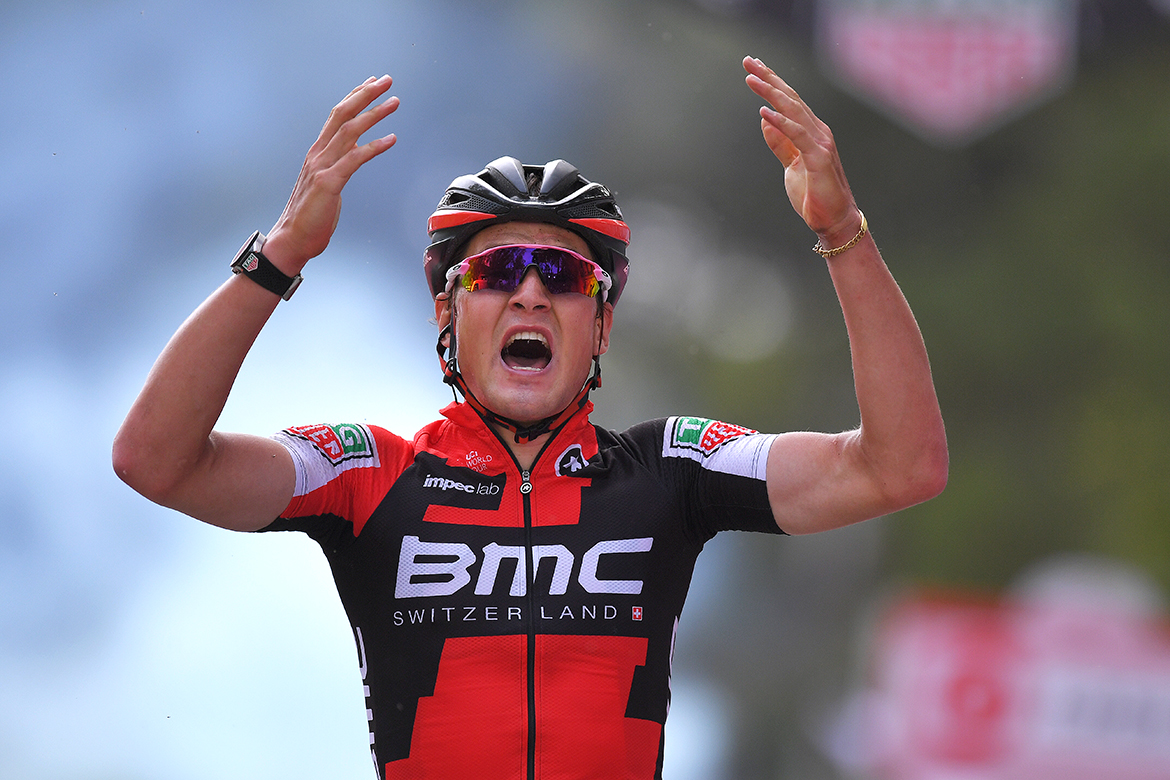
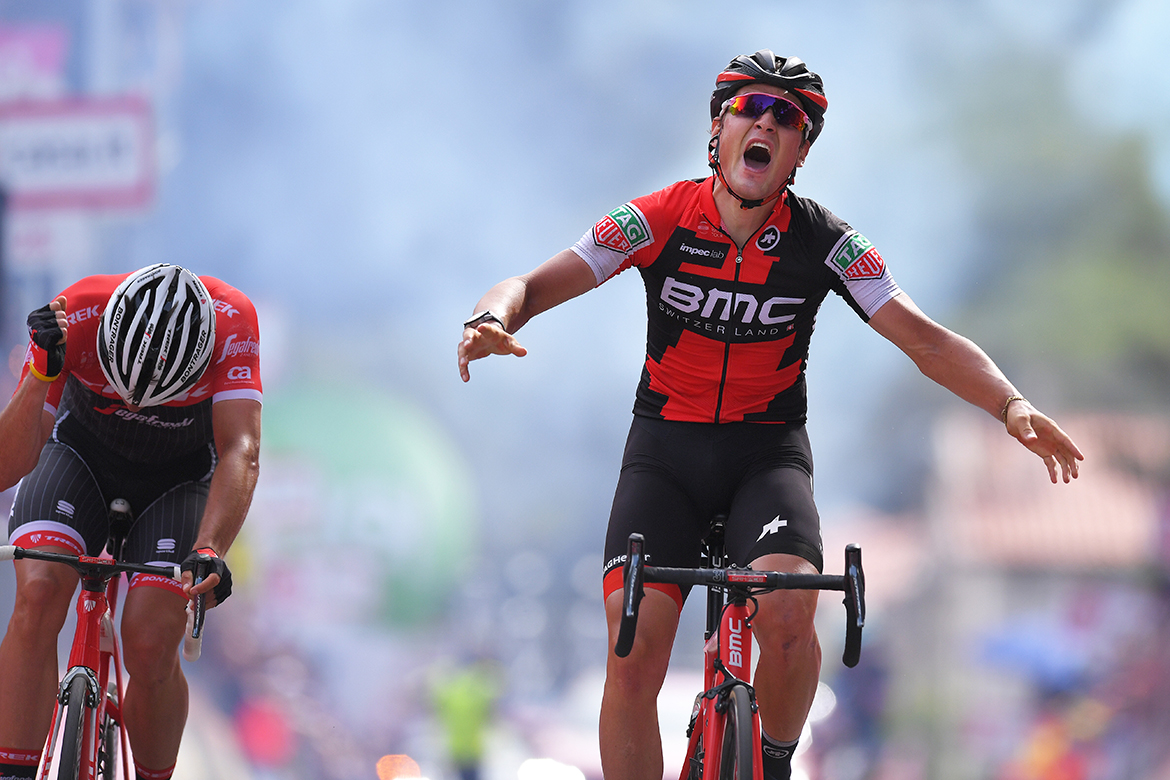
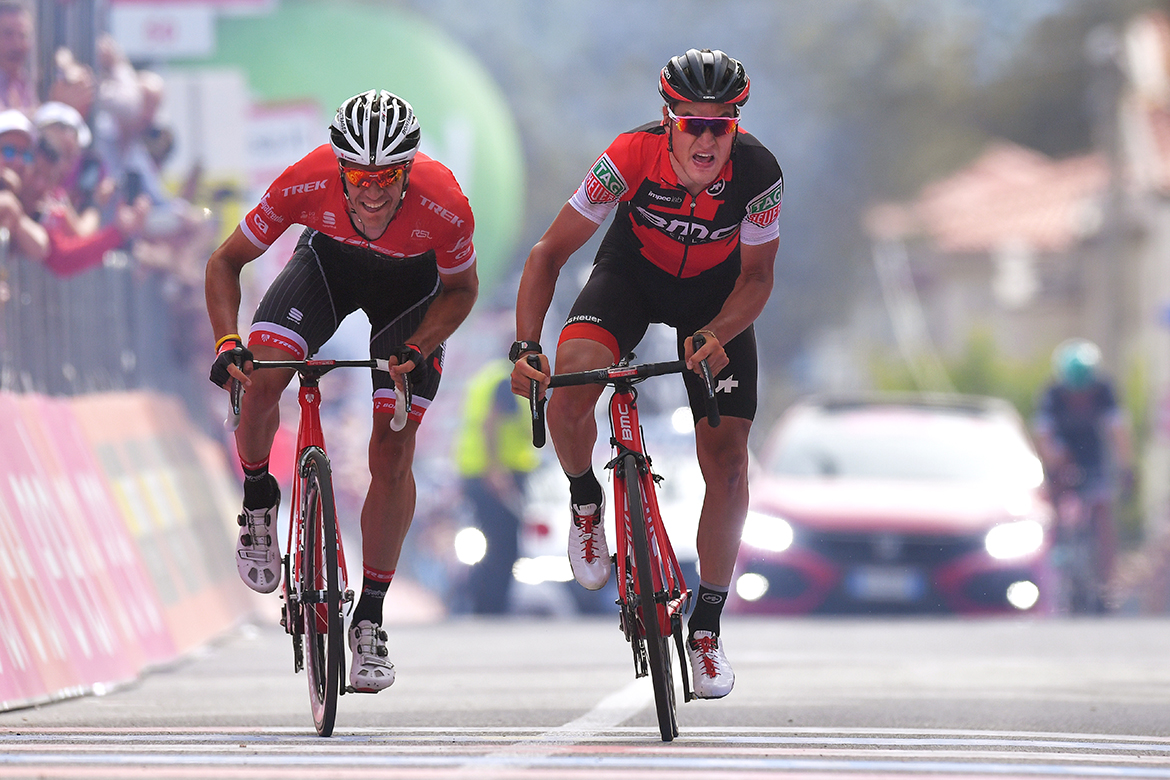
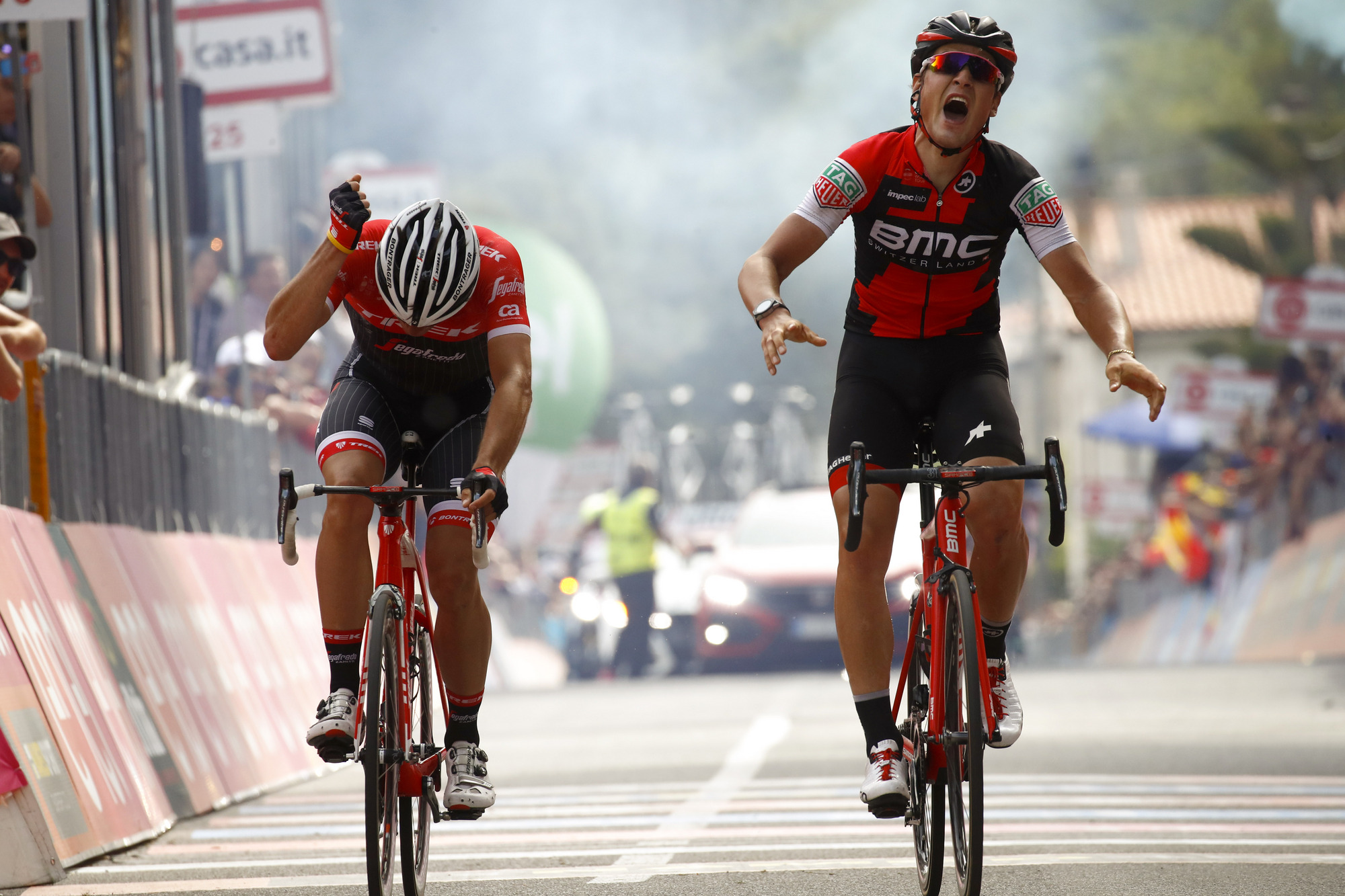
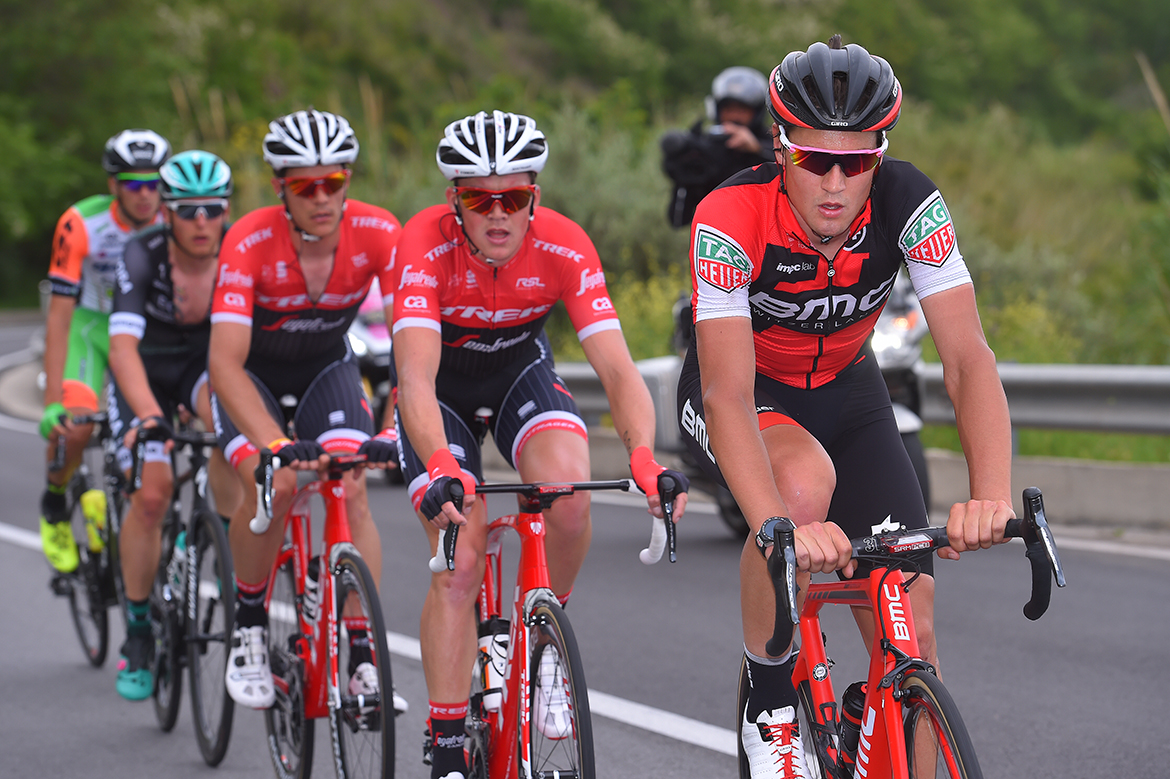
It helps when you know how to choose your battles. Silvan Dillier (BMC Racing) weighed up the profile and weighed up the field, and duly circled stage 6 of the Giro d'Italia in his road book. Ordinarily, the uphill finish at Terme Luigiane would be one for the puncheurs, but there are relatively few of their number in this year's race. Dillier considered the odds and opted to infiltrate the day's early break.
"I saw from the profile that this wasn't really a day for the sprinters because there were a few climbs in the final and the uphill finish wasn't for pure sprinters," Dillier said after claiming the stage win. "This was a stage more for Classics riders, guys who are good at the Tour of Flanders or Amstel, but in the peloton, there aren't so many riders in that style, so that's why I took my chance."
It was, in short, a finale ideally suited to the characteristics of the man who carried off each of those Classics this year, Philippe Gilbert (Quick-Step Floors), and Dillier paid a joking tribute to his former teammate – an absentee due to injury – as he waited to mount the podium. "First, I want to thank Philippe for not coming here," he smiled. "He was a really good teammate and a big idol for me in our team."
Dillier managed to forge clear in the company of Jasper Stuyven, Mads Pedersen (Trek-Segafredo), Lukas Pöstlberger (Bora-Hansgrohe) and Simone Andreetta (Bardiani-CSF) shortly after the race left the start in Reggio Calabria, and when the quintet reached the final 25 kilometres with almost four minutes in hand, it was clear that they would fight it out for stage honours.
Stuyven was particularly active in the closing kilometres, forcing the pace on the final categorised climb of Fuscaldo, and then launching another, stinging acceleration on the unclassified haul from Acquappesa that only Dillier and Pöstlberger could follow. In a tense finale, Dillier proved the strongest in the uphill sprint, despite Stuyven's reputation as the faster finisher.
"I have a powerful sprint too. I know this and I know this kind of finish suits me well," Dillier said. "I have the power for an uphill finish and I tried to believe in myself. Jasper is a very strong rider, so to beat someone like him is a very nice feeling."
Indeed, it was a measure of Dillier's confidence in his own speed that he made no attempt to rid himself of Stuyven before the final kick to the line. It was instead the Trek-Segafredo who proved the principal aggressor once the break's alliance of circumstance melted on the approach to Terme Luigiane, but Stuyven's eagerness was not rewarded.
The latest race content, interviews, features, reviews and expert buying guides, direct to your inbox!
"I was pretty sure he was going to try something," Dillier said. "I wasn't really surprised when he went on the last climb. I know I just had to stick with him. I never considered attacking myself, because I thought I had a better chance in the sprint."
For the 26-year-old Dillier, victory in Terme Luigiane was the biggest of his career to date, while his presence in the break was a sign that BMC's ambitions at this race extend beyond Tejay van Garderen's tilt at the general classification. The American finished safely in the main peloton among the contenders for the maglia rosa as Dillier scored a win that offered some cheer after Rohan Dennis' abandon earlier in the week.
"The GC is our main goal, but it's not going to stop us from looking for a stage again in the next days," directeur sportif Max Sciandri said. "I said to Tejay when we came here: 'I want you to give chances. You're not going to have a whole team around you always.' Guys are going to want to go in breaks. If we give them one chance to go in breaks, they'll give it back tenfold in their commitment to the team and our overall goals."

Barry Ryan was Head of Features at Cyclingnews. He has covered professional cycling since 2010, reporting from the Tour de France, Giro d’Italia and events from Argentina to Japan. His writing has appeared in The Independent, Procycling and Cycling Plus. He is the author of The Ascent: Sean Kelly, Stephen Roche and the Rise of Irish Cycling’s Golden Generation, published by Gill Books.

